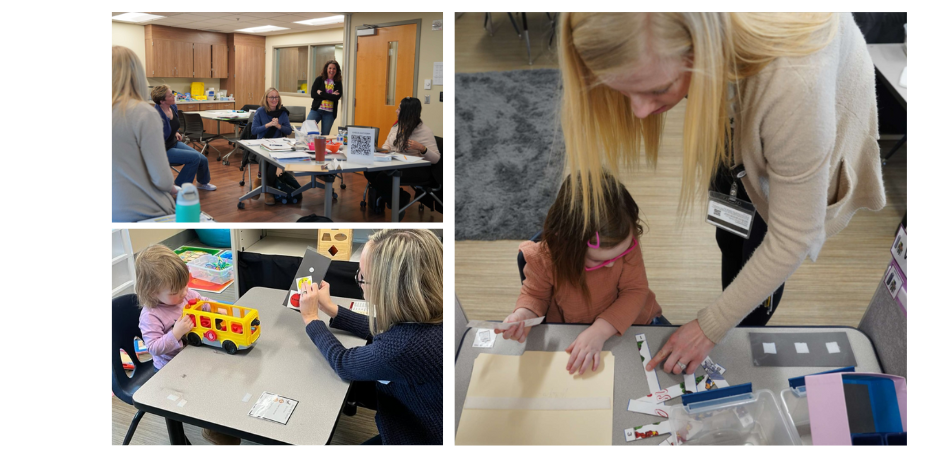
The HANDS in Autism® team recently delivered another impactful 3-Day Early Childhood Training session.
Participants praised the interactive nature of the training, which included a mix of independent and group learning opportunities. One participant enthusiastically shared, "Hands-on opportunities!! I love taking the time to learn the details but then being able to apply it." The use of simulated and live practice sessions allowed attendees to apply new skills in real-time, enhancing their understanding and confidence in working with students with autism spectrum disorder (ASD).
The training covered essential topics such as visual structure, educational and behavioral assessments, skills teaching, behavior intervention, and social skills training. This comprehensive approach ensured that participants were well-equipped to make appropriate programming decisions for their students and classrooms. One attendee highlighted the value of "Application of task analysis with visuals- putting it all together!"
Many participants reported significant improvements in their ability to support students with ASD. They noted that the strategies and tools provided during the training were practical and immediately applicable in their professional settings. This led to better educational outcomes and more inclusive classroom environments. One participant expressed their gratitude, saying, "Love love love !!! thank you so much."
The training also fostered a sense of community among early childhood professionals. Participants valued the opportunity to connect with peers, share experiences, and collaborate on best practices. This networking aspect contributed to the overall success and sustainability of the training's impact. As one participant noted, "Doing the activities and describing strategies" was particularly beneficial.
The availability of partial scholarships made the training accessible to a broader audience, ensuring that financial constraints did not hinder professional development. This inclusivity was a key factor in the training's widespread success. The emphasis on "activities and visuals" was repeatedly mentioned as a highlight by attendees, underscoring the hands-on and practical nature of the training.

